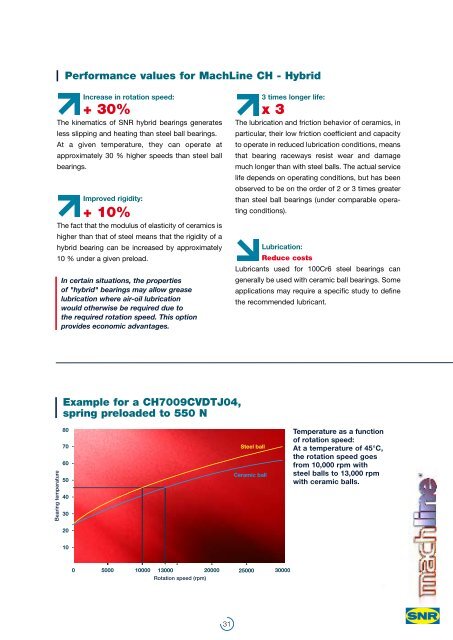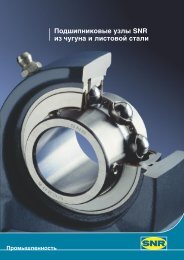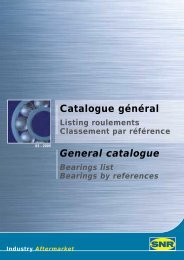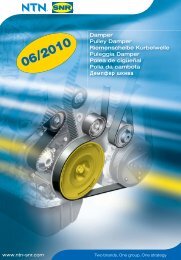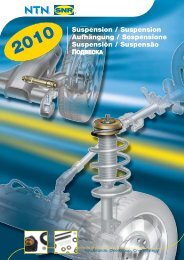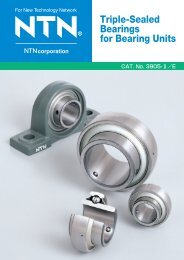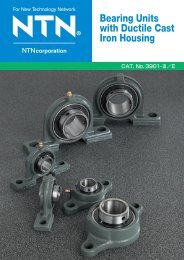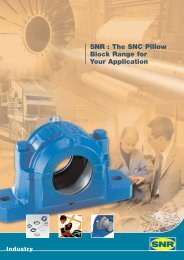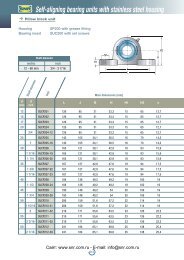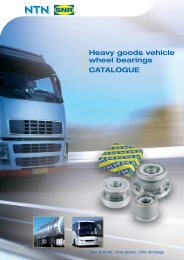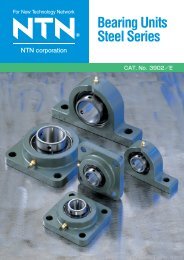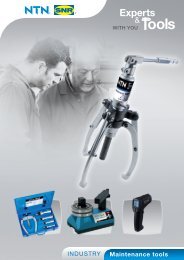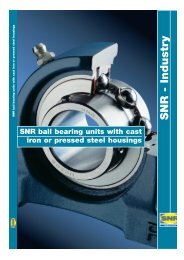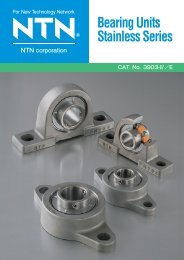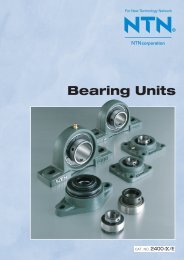plaquette MACHLINE - Ntn-snr.com
plaquette MACHLINE - Ntn-snr.com
plaquette MACHLINE - Ntn-snr.com
Create successful ePaper yourself
Turn your PDF publications into a flip-book with our unique Google optimized e-Paper software.
Performance values for MachLine CH - Hybrid<br />
Increase in rotation speed:<br />
+ 30%<br />
The kinematics of SNR hybrid bearings generates<br />
less slipping and heating than steel ball bearings.<br />
At a given temperature, they can operate at<br />
approximately 30 % higher speeds than steel ball<br />
bearings.<br />
Improved rigidity:<br />
+ 10%<br />
The fact that the modulus of elasticity of ceramics is<br />
higher than that of steel means that the rigidity of a<br />
hybrid bearing can be increased by approximately<br />
10 % under a given preload.<br />
In certain situations, the properties<br />
of "hybrid" bearings may allow grease<br />
lubrication where air-oil lubrication<br />
would otherwise be required due to<br />
the required rotation speed. This option<br />
provides economic advantages.<br />
3 times longer life:<br />
x 3<br />
The lubrication and friction behavior of ceramics, in<br />
particular, their low friction coefficient and capacity<br />
to operate in reduced lubrication conditions, means<br />
that bearing raceways resist wear and damage<br />
much longer than with steel balls. The actual service<br />
life depends on operating conditions, but has been<br />
observed to be on the order of 2 or 3 times greater<br />
than steel ball bearings (under <strong>com</strong>parable operating<br />
conditions).<br />
Lubrication:<br />
Reduce costs<br />
Lubricants used for 100Cr6 steel bearings can<br />
generally be used with ceramic ball bearings. Some<br />
applications may require a specific study to define<br />
the re<strong>com</strong>mended lubricant.<br />
Example for a CH7009CVDTJ04,<br />
spring preloaded to 550 N<br />
Bearing temperature<br />
80<br />
70<br />
60<br />
50<br />
40<br />
30<br />
20<br />
Steel ball<br />
Ceramic ball<br />
Temperature as a function<br />
of rotation speed:<br />
At a temperature of 45°C,<br />
the rotation speed goes<br />
from 10,000 rpm with<br />
steel balls to 13,000 rpm<br />
with ceramic balls.<br />
10<br />
0 5000 10000 13000<br />
20000 25000 30000<br />
Rotation speed (rpm)<br />
0<br />
31


